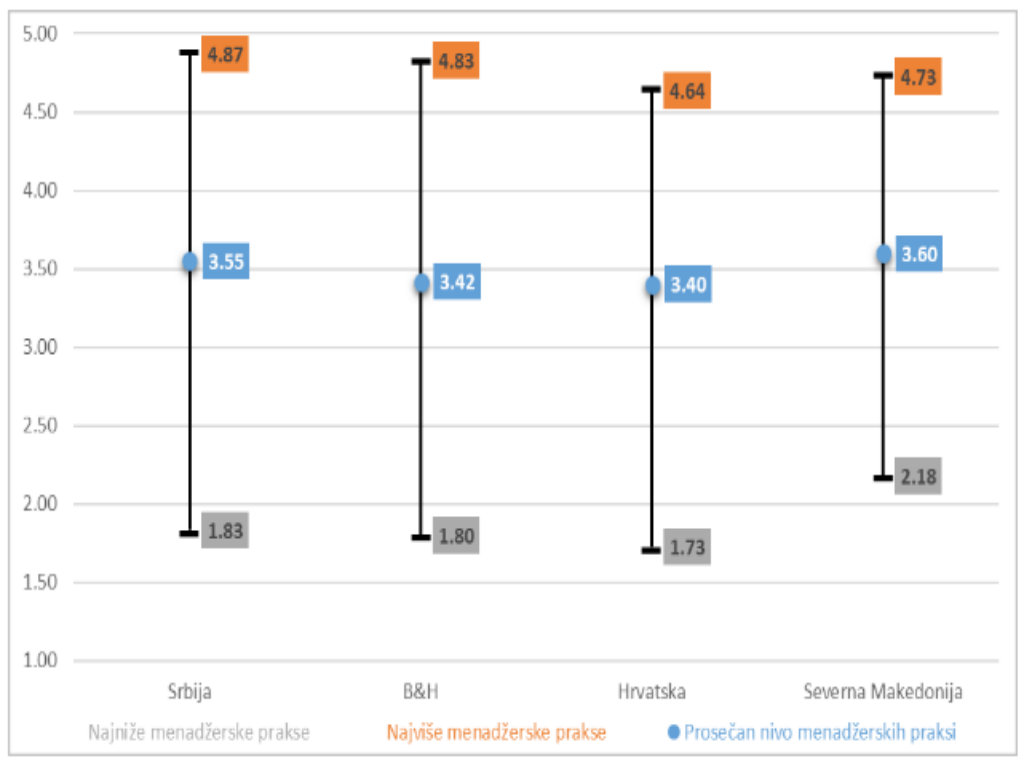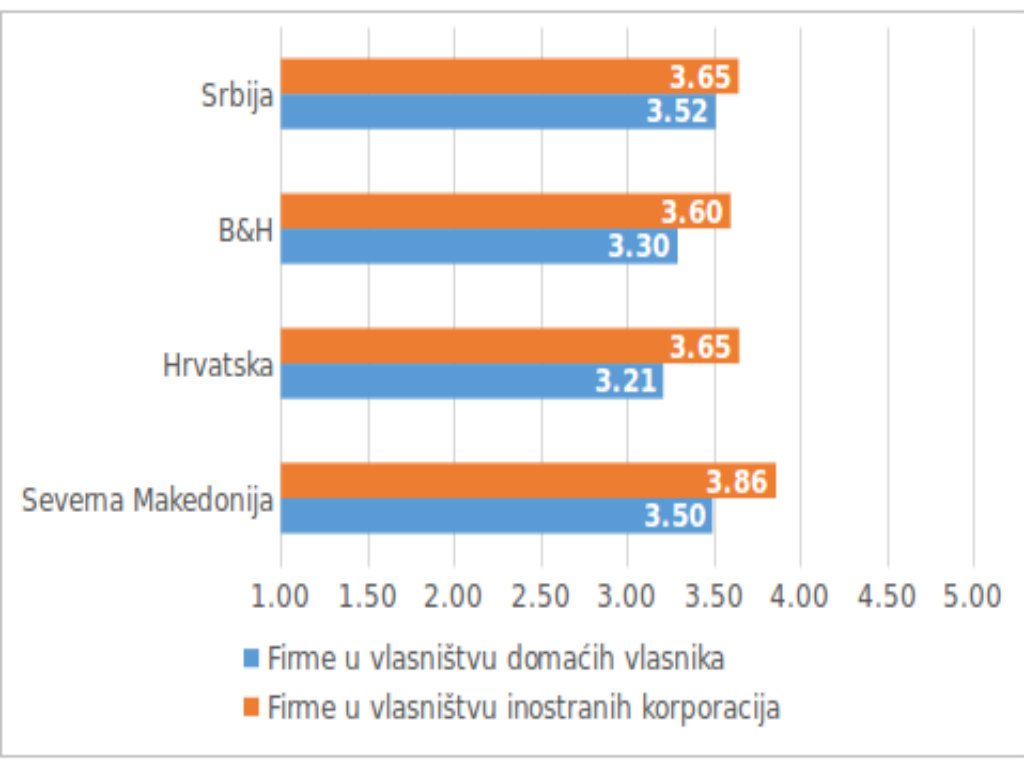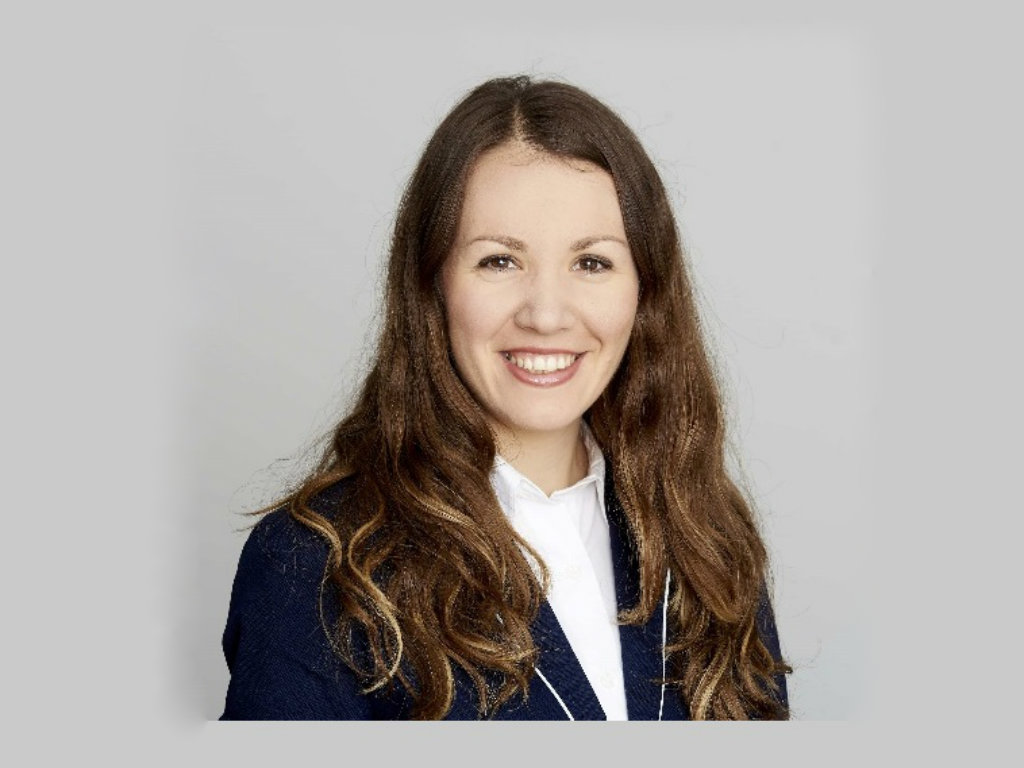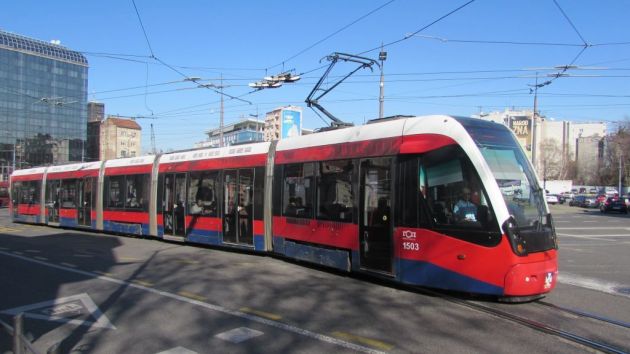What bothers managers in Serbia the most? ŌĆō We present the results of an international survey
 Wednesday, 30.10.2019.
Wednesday, 30.10.2019.
 10:46
10:46

ŌĆō Production companies in all four countries are ranked based on 18 concrete management practices, divided into four areas. They were tested using a survey which rated each practice on a scale of 1 (worst practices) to 5 (best practices). A total of 385 managers and factory owners from 277 factories in the region were surveyed. That covers slightly over 10% of the total number of factories with over 50 employees in the region ŌĆō Jelena Cerar says for eKapija.
Furthermore, the authors went to all four countries in order to visit some of the factories and see their management practices on the spot.
ŌĆō Survey results show that management practices in Serbia are nearly equal to those in factories in other countries of the region. Factories in all four countries in the region are run in a similar fashion and there is no significant difference between management practices in three out of four groups of practices. The only exception is workforce and talent management, where results show that factories in North Macedonia treat their employees slightly better than factories in other countries of the region ŌĆō the author of the survey says.

On the other hand, the results show considerable variations in the way factories are run depending on which industry they belong to. Computer and electronic industry factories are run the best, whereas the worst run factories are those in the metal industry.
ŌĆō This survey has also shown that the type of ownership influences how the factory is run. Factories owned by the founder and those which remained owned by the founder's family, regardless of the generation, have slightly better overall management practices than others, whereas the difference is much more prominent when it comes to worker and talent management. Family-owned factories treat their employees much better than others. Also, the results show that privatized factories have kept a considerable part of management practices from the previous period of state ownership ŌĆō Cerar points out.
Still, the factor which explains the biggest part of the difference between factories when it comes to management practices is whether factories belong to foreign international corporations or are domestically owned.
ŌĆō Factories owned by foreign corporations are often better run than domestic ones, although there are also large oscillations among foreign companies when it comes to management practice ratings. Detailed analyses show that the biggest part of the difference between factories owned by foreign corporations is down to the availability of instruction and formal procedures for factory management from company seats or regional headquarters. Factories which don't have support from their centrals, or where the support is negligible, are run similarly to how an average domestic factory is run. On the other hand, the presence of business travelers from the central (expatriates, employees with short-term goals or short-term business travelers) and the number of training courses at the central or in another such factory abroad does not have an impact on the quality of management practices in factories ŌĆō the author says.

Finally, in addition to the influence of the factors within the factory itself, managers and directors of factories throughout the region, in all countries, mostly complain about external factors, which could improve the operations.
Among the greatest problems they've identified, seeking greater support from the governments and the commerce chambers in their countries, are problems of emigration and lack of quality workforce, the widespread shadow economy, excessive taxes and other charges, non-flexible labor laws and an inefficient public sector.
ŌĆō In Serbia, in addition to the said problems, which are faced by colleagues in the entire region, additional problems cited by Serbian managers and factory owners are: a very complicated law and administrative procedures for expatriates and other workers from the central coming to the factory for a longer period; the unresolved status of Kosovo and frequent related problems, which often have an impact on the production for the Kosovo market and the export; mass corruption and long waiting periods for the issuing of permits for the construction of facilities; overly generous subsidies and privileged conditions for strategic foreign investors, which affect domestic companies and smaller foreign investors; the problem of quality and the unstable market of raw products (for example, raw milk and eggs) and the insufficiently developed infrastructure in rural areas, which prevents larger foreign investments in those areas ŌĆō Cerar says.
Jelena Cerar, M.A. M.Sc, is a PhD candidate at Wirtshaftsuniversit├żt Wien in the field of strategic management and international business. Her primary field of research are relations between company centrals and their branch offices abroad, the strategy and the structure of international corporation and an efficient distribution of resources in international corporations.
So far, she has presented her research in front of the United Nations and at numerous conferences abroad, and she is soon to present this survey at the World Bank in Washington. She won the Ban-Ki-moon Global Citizen 2019 award and the award as the best student at the Regional Academy of the United Nations. She finished her master economics studies in China, Belgium and Italy as a scholarship grantee of the European Commission. Cerar previously graduated in political sciences and economy in Belgrade.

Before starting her doctoral studies, she worked for several year as a strategic consultant and Business Development Manager at international companies headquartered in Germany, Austria and the United States of America and she founded an NGO which aims to improve education in rural areas in Serbia.
I. M.
Most Important News
06.04.2024. | Agriculture
Preconditions for Placement of Fresh Blueberries and Dried Plums in Chinese Market Secured

16.04.2024. | News
Jovan Ciric, Leasing Director Retail MPC Properties ŌĆō MPC Echo symbolizes our desire for good ideas and innovative endeavors to spread freely and bring about positive changes

16.04.2024. | News
10.04.2024. | Finance, IT, Telecommunications, Tourism, Sports, Culture
Creative Industry ŌĆō What This Serbian Economy Sector Worth EUR 2 Billion Encompasses

10.04.2024. | Finance, IT, Telecommunications, Tourism, Sports, Culture
18.04.2024. | Industry, Finance
Here come the new hunters for Serbian gold ŌĆō Australian Strickland Metals buys mining project on mountain Rogozna

18.04.2024. | Industry, Finance
16.04.2024. | News
Economy Fair in Mostar opens ŌĆō 26 companies from Serbia exhibiting

16.04.2024. | News
18.04.2024. | Transport
Jovanovic: Purchase of Siemens trams produced in Kragujevac for GSP Beograd should be considered

18.04.2024. | Transport


 Izdanje Srbija
Izdanje Srbija Serbische Ausgabe
Serbische Ausgabe Izdanje BiH
Izdanje BiH Izdanje Crna Gora
Izdanje Crna Gora


 News
News






